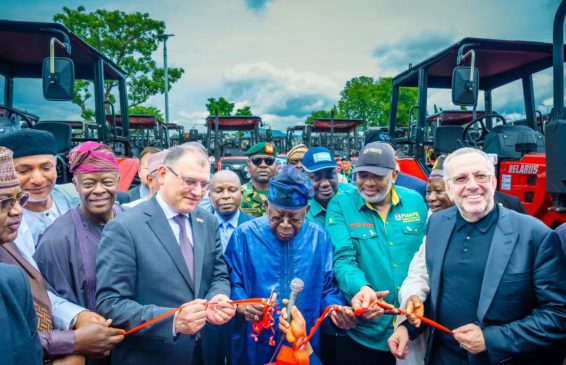In a renewed push to tackle food insecurity and sanitize Nigeria’s agricultural sector, the administration of President Bola Ahmed Tinubu has launched a nationwide audit and digital registry of farmers aimed at eliminating “briefcase farmers” — individuals who fraudulently benefit from government agricultural interventions without being involved in actual food production.
The initiative is part of a wider agricultural reform strategy to ensure that government support reaches genuine farmers. A digital system is being deployed to verify and monitor registered farmers, enabling efficient distribution of resources and funding across the agricultural value chain.
Speaking on the development, presidential aides noted that the registry will help plug the longstanding leakages in intervention programs and ensure that critical inputs and subsidies are directed to those actively engaged in cultivation and production.
In a complementary move, the federal government has finalized plans to establish cattle breeding centres across all six geopolitical zones of the country. This initiative, to be supervised by the newly created Federal Ministry of Livestock Development, is designed to reduce the recurring conflicts between farmers and herders, while fostering a robust livestock value chain that supports meat, dairy, and leather production.
The administration highlighted these efforts as part of a broader national strategy to reposition Nigeria as a regional agricultural powerhouse. Some of the ongoing programs under this strategy include:
A National Mechanization Programme that aims to deliver 10,000 tractors across the country within five years. So far, 2,000 tractors and other essential farming equipment have been delivered to support large-scale mechanized farming.
The Special Agro-Processing Zones (SAPZ) initiative, executed in partnership with the African Development Bank, which focuses on creating agro-industrial hubs that support value addition and rural employment.
The Agropocket Initiative, which has already enabled the cultivation of over 133,000 hectares of wheat in Northern Nigeria, contributing to domestic grain production and reducing import dependency.
Presidency sources emphasized that these interventions are geared toward achieving sustainable food security, reducing reliance on food imports, and creating economic opportunities through agriculture.
“President Tinubu’s Renewed Hope Agenda places food security at the core of our national priorities. By cleaning up the system, investing in infrastructure, and supporting genuine producers, we’re laying the foundation for a prosperous, agriculturally self-reliant Nigeria,” a senior government official stated.




